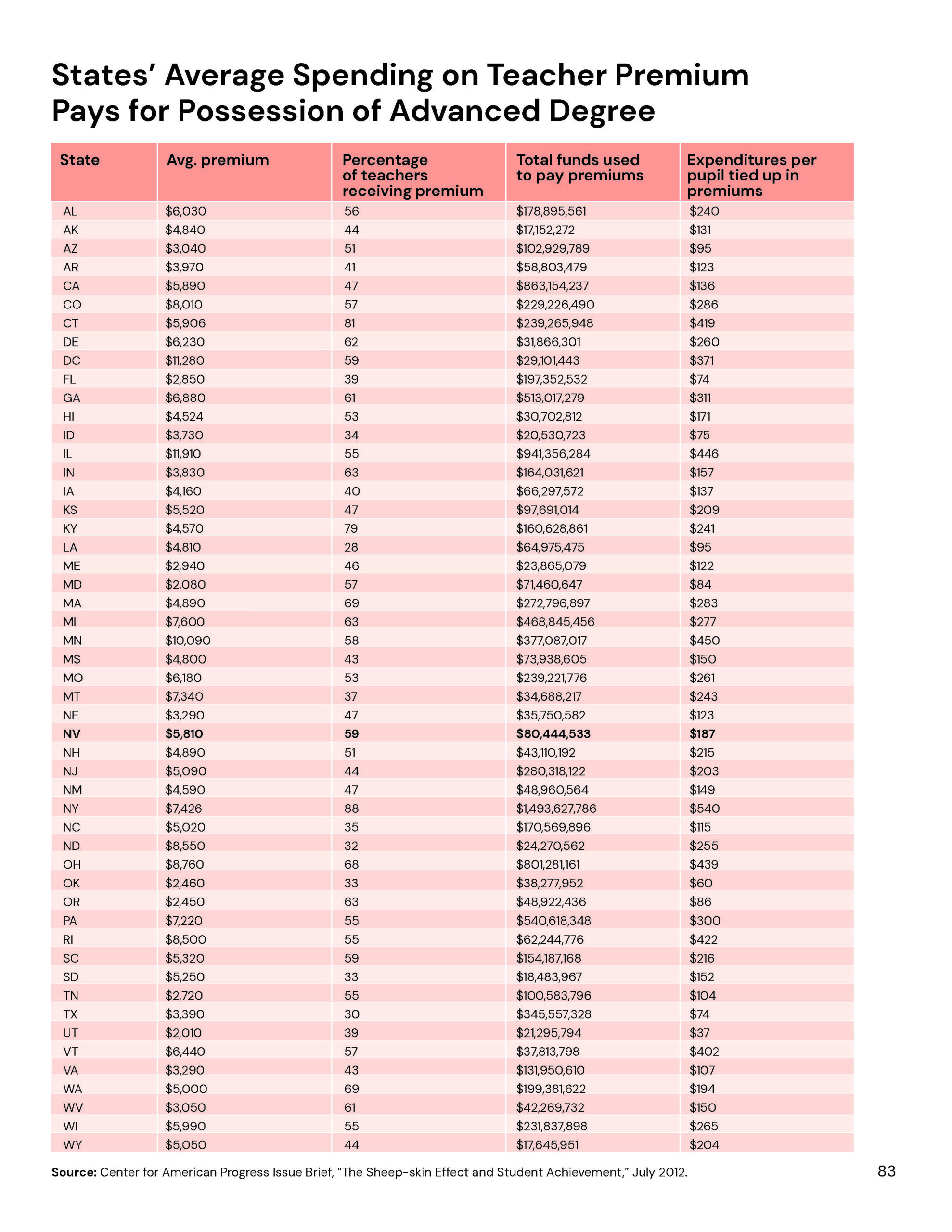Premium Pay for Advanced Degrees
School districts across Nevada and the nation offer various amounts of premium pay as an incentive for teachers to pursue advanced degrees. The motivation behind this incentive relies on the belief that more highly educated teachers would become more effective classroom instructors and the resulting improvement in instruction would benefit students.
However, when researchers have reviewed the empirical effects of premium pay for advanced degrees, they have almost universally found that this form of education spending is not cost-effective. Even the left-leaning Center for American Progress, for instance, derides the empirical “disconnect between the goal of improving student achievement and the tradition of paying teachers extra simply for holding post-baccalaureate sheepskin.”1
Key Points
Outside of math and science, advanced degrees do not increase teachers’ effectiveness. The most nuanced empirical studies into teachers’ attainment of advanced degrees shows that when those degrees are obtained in specific content fields, including math and science, they do measurably increase a teacher’s effectiveness. However, the same research shows that advanced degrees earned in other fields add no observable benefit.2
Only a tiny minority of teachers’ advanced degrees are in content fields such as math or science. Teachers have mostly responded to the availability of premium pay by pursuing degrees in less rigorous subjects that add no observable value for students. Nationwide, 90% of teachers’ master’s degrees are in education and not in a content field like math or science.3
More than half of Nevada teachers receive premium pay for advanced degrees. Teachers become automatically eligible to receive premium pay for advanced degrees upon completion of the degree regardless of the quality of granting institution. Teachers have responded to this ease of pursuit in large numbers, with 59 percent of Nevada teachers receiving premium pay for an advanced degree.4
Premium pay crowds out spending that could be used for better purposes. In FY 2008 alone, Nevada taxpayers spent more than $80 million providing teachers premium pay for advanced degrees.5 Over a two-year budget cycle, that figure comes out to more than $160 million. This spending has almost no impact on student achievement and could be redirected toward educational investments that are more closely associated with student outcomes.
Recommendations
Phase out premium pay for advanced degrees in non-content fields. Empirical evidence on the role of advanced degrees in K-12 education lays out a clear case for school districts to divest from this spending, especially for degrees not earned in math or science. This recommendation enjoys broad support from across the political spectrum, including from the Center for American Progress.6

1 Raegen Miller and Marguerite Roza, “The Sheep-skin Effect and Student Achievement,” Center for American Progress issue brief, July 2012.
2 Dan Goldhaber et al., “A Three-Way Error Components Analysis of Educational Productivity,” Education Economics, Vol. 7, No. 3 (1999).
3 Op cit., Miller and Roza, note 1.
4 Ibid.
5 Ibid.
6 Ibid.
